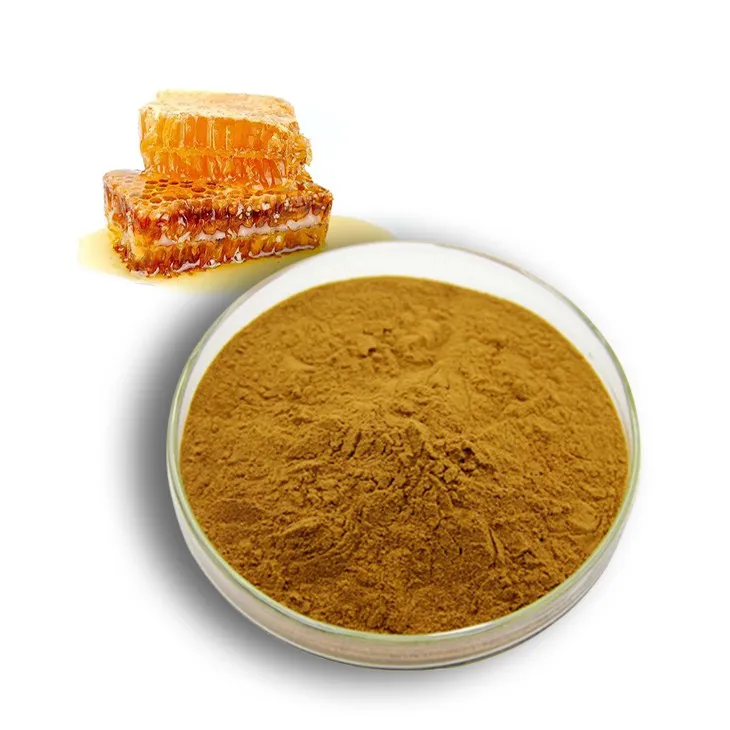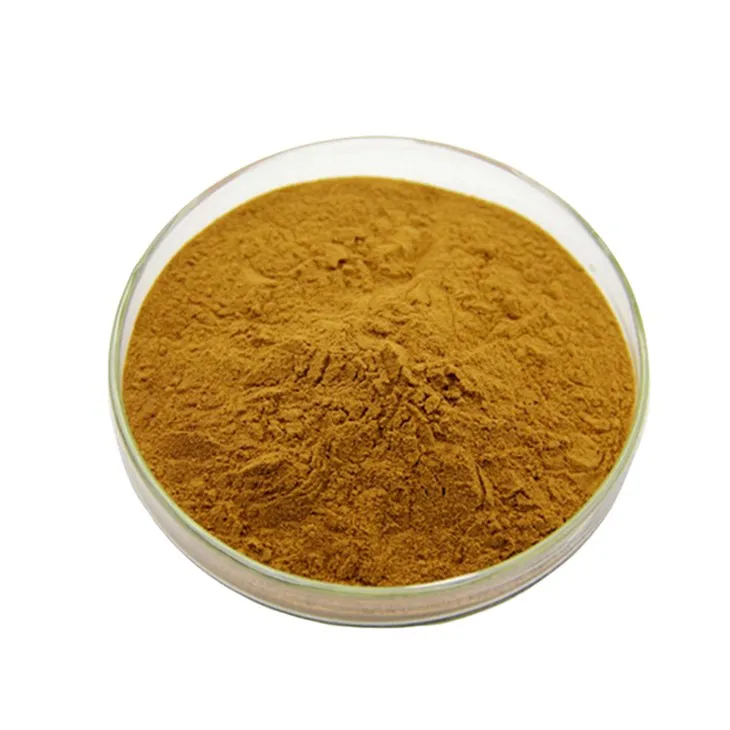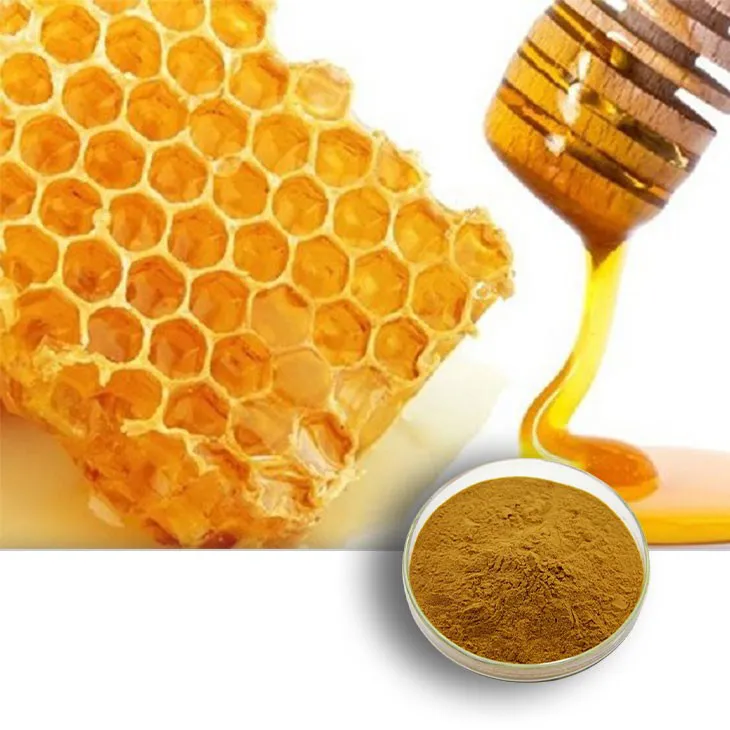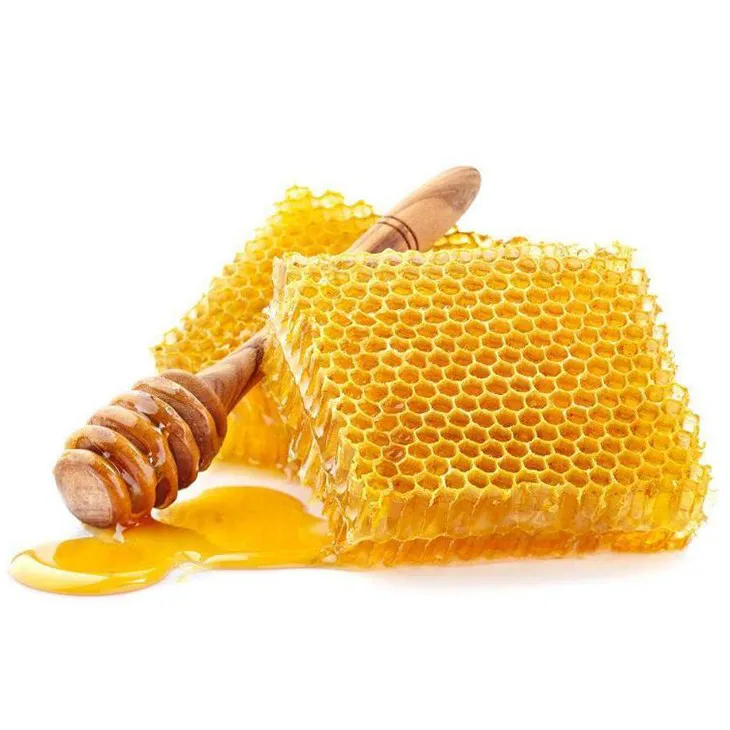- 0086-571-85302990
- sales@greenskybio.com
The Magic of Propolis Extract Powder: A Comprehensive Guide
2024-11-13

1. Introduction
Propolis Extract Powder has been gaining increasing attention in recent years due to its numerous potential benefits. This remarkable substance, often referred to as "bee glue," is a resinous mixture that honeybees collect from various plant sources. It serves multiple purposes within the beehive, such as sealing cracks, protecting against invaders, and providing a sterile environment for the brood. However, its uses extend far beyond the beehive, and in this comprehensive guide, we will explore the origin, extraction process, and its diverse effects on health, beauty, and other aspects.

2. Origin of Propolis
2.1 Plant Sources
Propolis is sourced from a wide variety of plants. Bees typically gather resins from tree buds, leaves, and twigs. Some of the common plant sources include poplar, willow, birch, and coniferous trees. The type of plants available in the bees' foraging area greatly influences the composition of the propolis. For example, propolis from poplar - rich regions may have different characteristics compared to that from areas dominated by coniferous trees.
2.2 Geographic VariationsGeographical location also plays a significant role in the origin and properties of propolis. Propolis from different regions around the world can vary widely in terms of its chemical composition. For instance, Brazilian green propolis is known for its high content of Artepillin C, which is attributed to the unique plant species found in the Brazilian rainforests. In contrast, propolis from temperate regions may have a different set of active compounds.

3. Extraction Process of Propolis Extract Powder
3.1 Collection
Beekeepers first collect raw propolis from the beehives. This is usually done by using special tools to gently scrape the propolis from the frames, walls, and other parts of the hive where the bees have deposited it. It is important to ensure that the collection process does not harm the bees or disrupt the normal functioning of the hive.
3.2 PurificationOnce collected, the raw propolis contains impurities such as wax, bee parts, and debris. To purify it, various methods can be employed. One common method is to use solvents like ethanol or water - ethanol mixtures. The propolis is dissolved in the solvent, and then filtered to remove the insoluble impurities. This purification step is crucial to obtain a high - quality propolis extract.
3.3 Concentration and DryingAfter purification, the propolis solution is concentrated to increase the concentration of the active compounds. This can be done through evaporation of the solvent under controlled conditions. Once the desired concentration is achieved, the propolis extract is dried to form a powder. Drying methods may include freeze - drying or spray - drying, which help to preserve the bioactive components of the propolis.

4. Health Benefits of Propolis Extract Powder
4.1 Immune System Support
Propolis is known for its immune - enhancing properties. It contains various bioactive compounds such as flavonoids, phenolic acids, and terpenoids that can stimulate the immune system. These compounds help in increasing the production of immune cells like white blood cells, which play a crucial role in fighting off infections. For example, in vitro studies have shown that propolis can enhance the activity of macrophages, which are responsible for engulfing and destroying foreign pathogens.
4.2 Antibacterial and Antifungal PropertiesOne of the most well - known properties of propolis is its ability to combat bacteria and fungi. It has been shown to be effective against a wide range of pathogenic microorganisms. Propolis can inhibit the growth of bacteria such as Staphylococcus aureus and Escherichia coli. Its antifungal activity is also significant, being effective against Candida albicans, a common fungal pathogen. This antibacterial and antifungal action makes propolis extract powder a potential natural alternative to synthetic antibiotics and antifungal agents in some cases.
4.3 Anti - Inflammatory EffectsPropolis has anti - inflammatory properties, which can be beneficial for various inflammatory conditions. The bioactive compounds in propolis can reduce inflammation by inhibiting the production of inflammatory mediators such as cytokines and prostaglandins. This makes it potentially useful in the treatment of conditions like arthritis, where inflammation is a major factor. Clinical studies have shown promising results in reducing pain and improving joint function in arthritis patients when supplemented with propolis.
4.4 Oral Health Benefits
- Propolis extract powder can be used to promote oral health. It has antibacterial properties that can help in preventing tooth decay by inhibiting the growth of cavity - causing bacteria.
- It can also be used to treat gum diseases. Propolis can reduce inflammation in the gums and promote the healing of gum ulcers.
- Some oral care products, such as toothpastes and mouthwashes, now incorporate propolis extract powder due to its beneficial effects on oral hygiene.
- Propolis may support digestive health. It can help in maintaining a healthy gut microbiota by inhibiting the growth of harmful bacteria in the gut.
- It has also been reported to have a soothing effect on the digestive tract, which can be beneficial for people with conditions like gastritis or ulcers.

5. Beauty Benefits of Propolis Extract Powder
5.1 Skin Health
- Propolis has antioxidant properties that can protect the skin from damage caused by free radicals. Free radicals can lead to premature aging of the skin, including the formation of wrinkles and fine lines. By neutralizing these free radicals, propolis helps to keep the skin looking youthful.
- It also has antibacterial and anti - inflammatory properties that are beneficial for treating acne. Propolis can reduce the inflammation associated with acne breakouts and kill the bacteria that cause acne.
- For those with sensitive skin, propolis can be a gentle and effective ingredient. It can soothe irritated skin and help to repair the skin barrier.
- Propolis extract powder can be used to improve hair health. It can strengthen the hair follicles, reducing hair fall.
- It also has a conditioning effect on the hair, making it smoother and more manageable.
- Some hair products now contain propolis extract powder to provide these benefits to consumers.
6. Other Applications of Propolis Extract Powder
6.1 Veterinary Use
Propolis extract powder is also used in veterinary medicine. It can be used to treat various ailments in animals, such as skin infections, wounds, and respiratory infections. Just like in humans, propolis has antibacterial, anti - inflammatory, and immune - enhancing properties in animals, making it a valuable natural remedy.
6.2 Food Preservation
- Propolis has antimicrobial properties that can be utilized in food preservation. It can inhibit the growth of spoilage microorganisms in food, extending the shelf life of products.
- Some natural food products are now incorporating propolis extract powder as a natural preservative, appealing to consumers who prefer natural and clean - label products.
7. Safety and Precautions
7.1 Allergic Reactions
Although propolis is generally considered safe for most people, some individuals may be allergic to it. Allergic reactions can range from mild skin rashes to more severe respiratory symptoms in rare cases. People with known allergies to bee products, such as honey or bee stings, should exercise caution when using propolis extract powder.
7.2 Dosage ConsiderationsWhen using propolis extract powder for its various benefits, it is important to follow the recommended dosage. Excessive use may lead to potential side effects, although such cases are relatively rare. The appropriate dosage may vary depending on the intended use, whether it is for health, beauty, or other applications.
8. Conclusion
Propolis extract powder is truly a magical substance with a wide range of potential benefits. Its origin from plant sources and the complex extraction process contribute to its diverse composition of bioactive compounds. From its role in supporting the immune system, combating infections, reducing inflammation, to its applications in health, beauty, and other areas, propolis extract powder has much to offer. However, like any natural product, it is important to use it with appropriate safety precautions. As research continues to uncover more about this remarkable substance, its applications are likely to expand further in the future.
FAQ:
What is propolis?
Propolis is a resinous substance that bees collect from tree buds, sap flows, or other botanical sources. Bees use propolis to seal small openings in their hives, strengthen the structure, and protect against invaders and diseases.
How is propolis extract powder made?
The extraction process of propolis extract powder typically involves several steps. First, raw propolis is collected. Then, it is often dissolved in a suitable solvent, such as ethanol, to extract the active compounds. After that, the solvent is removed through evaporation or other techniques, leaving behind the concentrated propolis extract, which can be further processed into powder form.
What are the health benefits of propolis extract powder?
Propolis extract powder has numerous health benefits. It has antibacterial properties, which can help fight against harmful bacteria in the body. It also has anti - inflammatory effects, potentially reducing inflammation in various parts of the body. Additionally, it may boost the immune system, helping the body to better defend against diseases.
Can propolis extract powder be used for beauty purposes?
Yes, it can. Propolis extract powder is rich in antioxidants. These antioxidants can help protect the skin from damage caused by free radicals, which are associated with aging. It may also have moisturizing properties and can be used in skincare products to improve the overall health and appearance of the skin.
Are there any side effects of using propolis extract powder?
While propolis extract powder is generally safe for most people, some individuals may be allergic to it. Allergic reactions can range from mild skin rashes to more severe symptoms such as difficulty breathing in rare cases. It is recommended to do a patch test before using it, especially for those with known allergies.
Related literature
- The Composition and Biological Properties of Propolis"
- "Propolis: A Natural Remedy with Multiple Health Benefits"
- "Propolis Extract in Skincare: A Review"
- ▶ Hesperidin
- ▶ citrus bioflavonoids
- ▶ plant extract
- ▶ lycopene
- ▶ Diosmin
- ▶ Grape seed extract
- ▶ Sea buckthorn Juice Powder
- ▶ Beetroot powder
- ▶ Hops Extract
- ▶ Artichoke Extract
- ▶ Reishi mushroom extract
- ▶ Astaxanthin
- ▶ Green Tea Extract
- ▶ Curcumin Extract
- ▶ Horse Chestnut Extract
- ▶ Other Problems
- ▶ Boswellia Serrata Extract
- ▶ Resveratrol Extract
- ▶ Marigold Extract
- ▶ Grape Leaf Extract
- ▶ blog3
-
Cranberry Plants and Skin - care Products.
2024-11-13
-
Milk Thistle Extract
2024-11-13
-
Purple Sweet Potato Extract
2024-11-13
-
Artichoke Extract
2024-11-13
-
Black Rice Extract
2024-11-13
-
Curcuma Longa Extract
2024-11-13
-
Boswellia Serrata Extract
2024-11-13
-
Tongkat Ali Extract
2024-11-13
-
Sophora Flavescens Root Extract
2024-11-13
-
Green Tea Extract
2024-11-13
-
Saponin Extract
2024-11-13





















